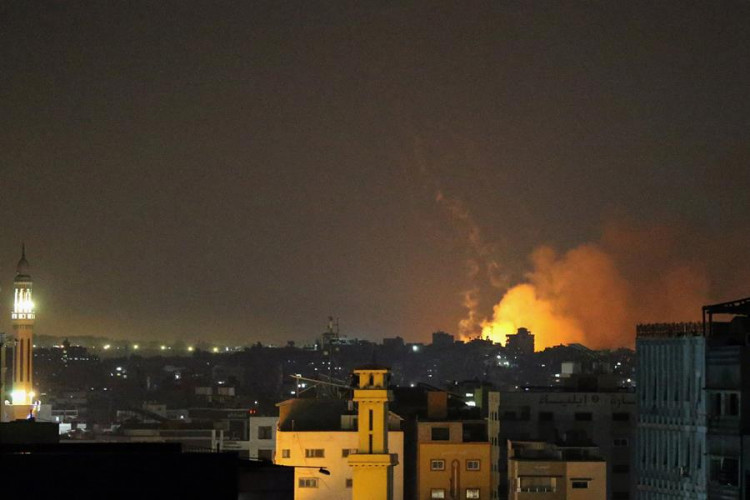In a series of events that have shaken the Middle East, at least 300 people have died and over 2,000 have been injured in Gaza and Israel, following a barrage of rockets fired by Hamas militants from Gaza into Israel. The Palestinian Health Ministry reported 232 deaths and 1,790 injuries in Gaza, while the Israeli Health Ministry confirmed over 100 deaths and more than 900 injuries on their side.
This sudden escalation, described by some as Israel's "Pearl Harbor moment," saw Hamas militants launching attacks from air, sea, and land. Civilians were targeted, hostages were taken, and families were forced to barricade themselves indoors, fearing for their lives. The day, which began with air raid sirens in the early morning, quickly turned into one of the most terrifying attacks Israel has witnessed in its 75-year existence.
Despite Israel's reputation for having one of the world's most formidable armed forces, bolstered by advanced technology and a premier intelligence agency, the nation was caught off guard. The scale and intensity of the attack raised questions about the effectiveness of Israel's defense mechanisms. Jonathan Conricus, a former international spokesman for the Israel Defense Forces (IDF), remarked, "The entire system failed. It's not just one component. It's the entire defense architecture that evidently failed to provide the necessary defense for Israeli civilians."
The IDF has been tight-lipped about whether the events of that fateful day constitute an intelligence failure. Military spokesman Lt. Col. Richard Hecht emphasized that the focus remains on the ongoing conflict and the protection of civilian lives, deferring discussions on intelligence lapses to a later time.
The timing of the attack, a day after the 50-year anniversary of the Yom Kippur War, where Arab states launched a surprise attack against Israel, was not lost on observers. Since its withdrawal from Gaza in 2005, Israel has invested billions in border security measures, including the Iron Dome rocket defense system and a smart border system equipped with sensors and subterranean walls. However, the recent events have cast doubts on the efficacy of these measures.
Aaron David Miller, a former State Department negotiator on Middle East issues, commented on the situation, stating, "I just don't think the Israelis saw this coming." He further highlighted that Israeli communities near Gaza were "obviously not adequately protected."
In response to the attacks, the IDF has initiated airstrikes in Gaza, targeting Hamas infrastructure. This has resulted in a significant number of casualties. Israeli Prime Minister Benjamin Netanyahu warned of a retaliatory response of unprecedented magnitude, while Maj. Gen. Ghassan Alian, the top official overseeing Palestinian territories, remarked that Hamas had "opened the gates of hell."
As the dust settles, one thing is clear: the events of that day will force Israel to reevaluate its defense strategies and respond in ways it has never done before.





